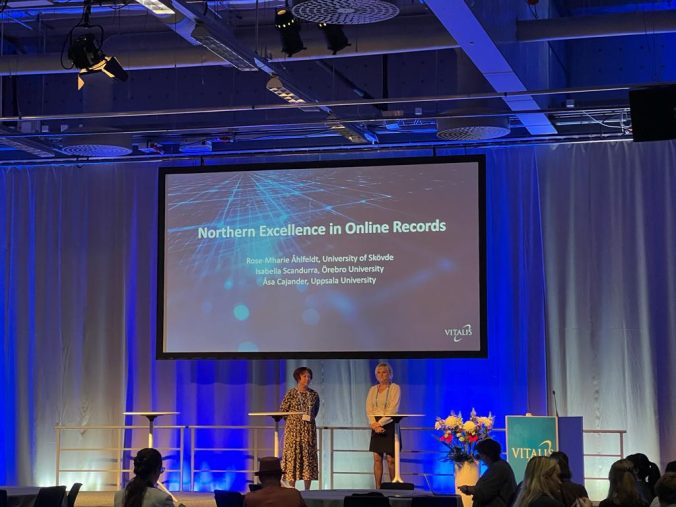The Medical Informatics Europe 2023 (MIE’2023) conference, held under the theme “Caring is Sharing – Exploiting Value in Data for Health and Innovation,” alongside the renowned VITALIS 2023, Scandinavia’s largest eHealth conference, created a stage where experts gathered to delve into the latest advancements and challenges in healthcare. The buzz around AI in healthcare was undeniable, emphasizing the need for regulation while recognizing its immense potential. Striking the delicate balance between innovation and patient safety became a key focal point, highlighting the importance of establishing robust frameworks and guidelines for AI deployment in healthcare settings.
Sweden, with its world-class healthcare and research institutions, thriving industry, and vibrant startup scene, served as the perfect backdrop for MIE’2023 and VITALIS 2023. Drawing decision makers, IT managers, researchers, and care administrators from various sectors, VITALIS provided a fertile ground for networking and collaboration among the different stakeholders in the field. This convergence of industry professionals from healthcare organizations, municipalities, county councils, and authorities facilitated invaluable connections and knowledge exchange.
The opening keynote at VITALIS was a highlight of the event, featuring influential speakers who offered compelling insights into the future of healthcare. Jakob Forssmed, Minister for Social Affairs and Public Health, stressed the significance of leveraging data and digital solutions to transform healthcare. David Novillo Ortiz from the World Health Organization shared noteworthy initiatives utilizing data and digital technologies. Tom Lawry, an AI expert, captivated the audience with his exploration of AI’s transformative potential in healthcare. The discussions revolved around the need for responsible implementation and regulation, keeping patient welfare at the forefront.
Innovative research on patients’ use of medical records online took center stage during the conferences, shedding light on the impact of patient-accessible electronic health records (PAEHR). A notable session led by Prof. Åsa Cajander focused on the effects of PAEHR on diverse patient groups, particularly in psychiatric and somatic care. The session underscored the necessity for further research on user experiences and perceptions, highlighting the complexities and considerations surrounding the implementation and impact of PAEHR in different healthcare contexts.
MIE’2023 and VITALIS 2023 emphasized the pivotal role of data, AI, and patient access in reshaping the healthcare landscape. These conferences provided an engaging platform for decision-makers, IT managers, researchers, and care administrators to collaborate, fostering innovation and knowledge-sharing. The seminars on AI adoption in healthcare emphasized the importance of responsible implementation, while presentations on patient access to medical records illuminated the benefits and challenges associated with PAEHR. The collective efforts of the healthcare community, as highlighted during these events, hold the potential to revolutionize patient outcomes and shape a future where innovation and compassion go hand in hand.

